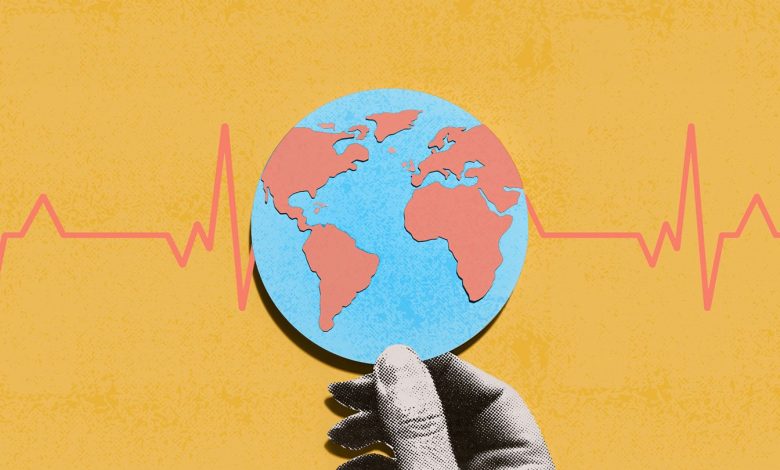Study Warns of Alarming Increase in Heart Disease Deaths Tied to High Temperatures

[ad_1]
Heat-related deaths from heart disease events like heart attacks and strokes may more than double by the middle of the century as extreme weather becomes more common, a new study found.
“Climate change and its many manifestations will play an increasingly important role in the health of communities around the world in the coming decades,” said the study’s lead author, Sameed Khatana, MD, MPH, an assistant professor of medicine at the University of Pennsylvania and a staff cardiologist at the Philadelphia Veterans Affairs Medical Center, in a statement. “Climate change is also a health equity issue, as it will impact certain individuals and populations to a disproportionate degree and may exacerbate preexisting health disparities in the U.S.”
Extreme Heat Days Will Continue to Increase
The heat index — which accounts for the way increased humidity can make the temperature feel hotter — reached at least 90 degrees an average of 54 days each summer between 2008 and 2019.
Each year, these extreme weather days were associated with about 1,650 excess heart disease deaths — deaths that wouldn’t have happened under milder weather conditions, according to study results published in the journal Circulation.
In a worst-case scenario, with few widespread efforts to combat climate change, there might soon be 80 days of extreme heat in future summers that contribute to roughly 5,500 excess heart disease deaths a year, the study predicted.
Under this scenario, it would mean deaths from causes like heart attacks and strokes would more than double by the middle of the century.
In a more plausible scenario, where U.S. efforts to curb global warming continue on their current trajectory, there would still be a 162 percent increase in cardiovascular disease deaths from extreme heat by the middle of the century, the study estimated.
Older Americans and Minorities Will Be Harder Hit by Climate Change
Elderly people will be particularly vulnerable under either scenario. Depending on how aggressively policies target global warming, the number of heat-related heart disease deaths among people older than 65 will be 2.9 times to 3.5 times higher by the middle of the century, per the study’s calculations.
Black Americans will be more susceptible to extreme weather days, the study suggests. The number of heat-related heart disease deaths among Black people is projected to be 3.8 times to 4.6 times higher by mid-century.
Extremes of both hot and cold ambient temperatures are linked to heart disease deaths, says Robert Brook, MD, a professor of medicine and the executive director of cardiovascular prevention at Wayne State University in Detroit.
“In the case of elevated heat indices, there are some plausible explanations which include dehydration and [reflexive] faster heart rates, low blood pressure, as well as increased metabolic requirements of various organs including the heart,” says Dr. Brook, who wasn’t involved in the new study. “This can promote cardiovascular problems including heart attacks and heart failure in susceptible people.”
RELATED: A Detailed Guide to Cold Weather Risks
Certain groups, like people over 65, may be at greater risk because they have preexisting heart problems and are less adaptable to the heat and acute stress, Brook says.
Other groups, including Black Americans, may be more vulnerable because they live in neighborhoods with more intense heat or because they have less access to air-conditioning or protective outdoor green spaces, Brook adds.
“Socially vulnerable individuals may also be more susceptible due to poorer underlying nutrition and worse control of traditional cardiovascular risk factors that place them at higher risk for heat stress,” Brook says.
How to Stay Safe During Extreme Heat
The good news is there’s a lot people can do to lower their risk even as summer days get hotter, Brook says.
“If you are at risk, practical actions would include avoiding or reducing time outdoors or activities and exercise during hot days, ensuring that you stay well-hydrated, and spending more time in temperature-controlled indoor settings,” Brook advises. “Although it’s not an option for everyone, at-risk people living in southern or hotter regions of the country may also consider spending hotter months in more temperate locations.”
[ad_2]




